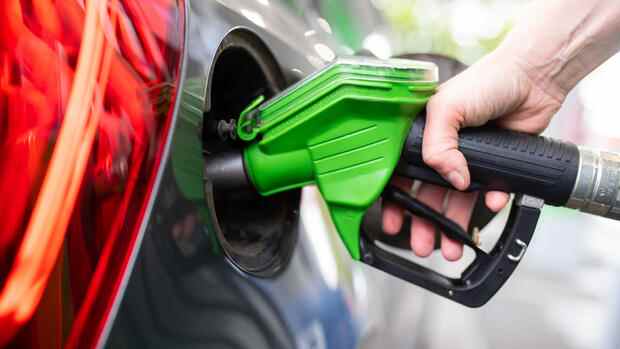Brussels The new CO2 emissions trading for buildings and transport could fail due to the currently high energy prices. The proposal is currently being discussed by the European Parliament. Emissions trading should offer an additional incentive to rely on clean technology for driving and heating. The lead deputy Peter Liese (CDU) defended the levy. But in the responsible environmental committee, a majority consisting of social democrats, liberals, greens and leftists is showing signs of disagreeing. “It would be very easy to overturn the second emissions trading scheme,” said Green MEP Michael Bloss. Because energy prices are currently so high that further taxes are even less popular than they already are.
“The situation is really serious,” said Liese at an event of the Potsdam Institute for Climate Impact Research (PIK). “There would be a lot of bad effects if we stopped this law,” he said, noting that the world is taking the EU’s climate action as an example. PIK Director Ottmar Edenhofer said: “I can hardly understand why Parliament is considering rejecting this proposal.”
Industrial companies have had to buy certificates for the CO2 they emit for years. This gives them an incentive to rely on particularly climate-friendly technology. Emissions are falling continuously. This instrument is now referred to as the “first” emissions trading scheme.
The EU Commission wants to introduce a second emissions trading system based on this example. Private consumers would be affected by this. Anyone who sells them petrol, diesel, heating oil or gas will have to show CO2 certificates. That would make heating and driving more expensive and should help with the energy transition. Heat pumps and insulation, electric cars and switching to the train would pay off more quickly. So far, this has hardly been used. Emissions in these areas are stagnating.
Top jobs of the day
Find the best jobs now and
be notified by email.
Read here: Despite the corona pandemic: the transport sector will again miss its climate targets in 2021
However, the Greens and Social Democrats rely on other instruments, such as renovation programs and a quick ban on new combustion engines. “If all of Europe pays the same price, that’s an advantage for the rich regions,” says MEP Bloss.
Provoking higher fuel prices is unpopular
The average household income in the richest countries of the EU is around five times higher than in the poorest. But the CO2 price would have to be the same everywhere. “The poorer countries cannot shoulder that. They already don’t know how to proceed.” Edenhofer argues that the price of fuel will have to remain high for many years to come, when the markets have calmed down and consumption has fallen.
The member states would also have to agree to the law. Officially, many have not yet positioned themselves. However, provoking higher fuel prices is highly unpopular. In many countries there are already protests because of the high prices. States are more concerned with suspending taxes to make heating and fuel cheaper.
>> Read here: Why the conflicts about the right climate protection are so difficult to solve.
Five environmental organizations are now trying to make compromises possible. This week they sent a paper with new proposals to the negotiators of the political groups in the European Parliament. The paper is available to the Handelsblatt. Some of the proposals have met with approval from various sides.
In part, the new CO2 price should not be borne by the customers, but by the energy companies. To this end, companies should provide regular insight into their cost calculations, according to a compromise proposal that Liese sent to his fellow parliamentarians. Another compromise proposal is an expansion of the climate social fund. This should be filled with money from the second emissions trading and cushion the price pressure by financing renovation programs, for example.
However, it would be more important for the opponents of the second emissions trading system that Liese accommodates them in the reform of the first emissions trading system. Here, too, there should be tightening so that emissions fall faster. There is a dispute about the question of when the free allocation of certificates will expire.
“It is not possible for important parts of industry to remain unaffected by the CO2 price for years, but the citizens should pay,” says Bloss. If Liese got involved, he would have a new problem: his own party family, including the CDU and CSU, is strictly against further tightening the requirements for industry.
More: Climate protection or social peace? Why the EU is in a dilemma
